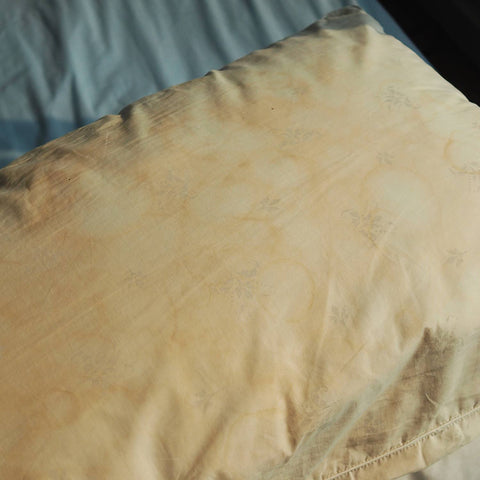Experiencing neck pain can dramatically affect your daily comfort and sleep quality. A good night's rest is essential for your overall health and well-being, yet neck pain is a common disruptor of sleep. Pillows often play a critical role in either causing or alleviating neck pain. The right pillow supports the natural curve of your neck, aligning it properly with your spine and shoulders when you lie down.
Choosing the correct pillow is an important decision tailored to your sleep habits and physiologic needs. Pillows that are too high or too low can contribute to strain and discomfort in your neck, back, and shoulders. Additionally, the type of materials and the design of a pillow are critical in ensuring a suitable sleeping posture. Memory foam, latex, and certain structured pillows are designed to enhance support, whereas other materials like down feathers may not offer the same level of neck stabilization.
Prevention of neck pain starts with adopting good sleep practices, including the careful selection of your pillow based on your sleeping position and personal preference. Keeping your spine in a neutral alignment throughout the night is fundamental, and the role of a well-chosen pillow in this quest cannot be overstated. Thus, being mindful of early signs of discomfort and knowing how to choose and use the right pillow can keep neck pain at bay, leading to restful sleep.
Understanding Pillow Influence on Neck Pain
Choosing the right pillow is crucial for preventing neck pain. It requires understanding how the support, material, and shape of a pillow interact with sleep position.
The Role of Pillow Support
Your neck relies on proper support from your pillow during sleep. A pillow that is too high or too low can misalign your cervical spine, leading to stiffness and discomfort. Memory foam and shredded foam pillows often provide contoured support, adapting to the shape of your neck and head, which can help maintain alignment. On the other hand, overly soft pillows, like some down or feather options, may not offer sufficient support for your neck.
The Impact of Pillow Materials
Pillow fill materials significantly affect comfort and support. Memory foam, latex, and down alternative fills are among the popular choices:
- Memory foam contours to your neck and head but can retain heat.
- Latex offers a firmer support and tends to sleep cooler than memory foam.
- Down pillows are soft and fluffy but may not provide enough neck support.
- Feather pillows, similar to down, can lack sufficient support and might cause neck pain.
- Down alternative provides the feel of down but is often hypoallergenic and can offer better support.
Pillow Shape and Sleep Position Relationship
Pillow shape should compliment your sleep position to prevent neck pain effectively. Ergonomic pillows cater to side and back sleepers, providing designated zones for optimal neck support. For stomach sleepers, a low-loft pillow can reduce strain on the neck. Here’s a simple guide:
- Back sleepers: A pillow with a medium loft and indentation for the head can aid in keeping the spine straight.
- Side sleepers: An adjustable pillow with a higher loft ensures the neck and spine remain aligned.
- Stomach sleepers: A soft, low-loft pillow helps avoid extending the neck backward.
Selecting a pillow with the right support, material, and shape for your sleep position is instrumental in avoiding neck pain and achieving a restful night’s sleep.
Effective Strategies for Neck Pain Prevention
To wake up feeling refreshed and without neck discomfort, it's crucial to focus on both the right pillow selection and additional preventative routines that contribute to neck health.
Choosing the Right Pillow for Your Needs
For Side Sleepers:
- Support: Ensure the pillow fills the gap between your ear and outside shoulder.
- Height: It should keep your spine parallel to the mattress, not slouched or overly elevated.
For Back Sleepers:
- Support: Opt for a pillow that maintains the natural curve of your spine.
- Thickness: A thinner pillow can prevent your head from being thrown too far forward.
For Stomach Sleepers:
- Flat: A flat pillow or no pillow at all can aid in keeping your spine more neutral.
- Support: Consider a body pillow for comfort and to reduce the urge to twist your spine.
Materials Matter:
- Memory Foam: Contours to the shape of your head and neck.
- Latex: Firm and holds shape well, offering consistent support.
- Orthopedic Pillows: Designed to support proper spinal alignment.
Additional Preventative Measures
Posture: Maintain upright posture during waking hours to reduce strain. Be conscious of your posture while sitting, especially when using computers or mobile devices.
Exercise: Strengthening the muscles in your neck and upper back can help support your cervical spine. Incorporate stretching and strength exercises to prevent stiff muscles and increase flexibility.
Sleeping Habits:
- Aim to keep a consistent sleep schedule.
- Evaluate your mattress for proper support—too soft or too firm can cause issues with spinal alignment.
Consult a Professional: If chronic neck pain persists, seek advice from a physical therapist or chiropractor for personalized exercises and posture strategies.
Make these strategies part of your daily routine to help ensure a pain-free neck and a better night's sleep.



